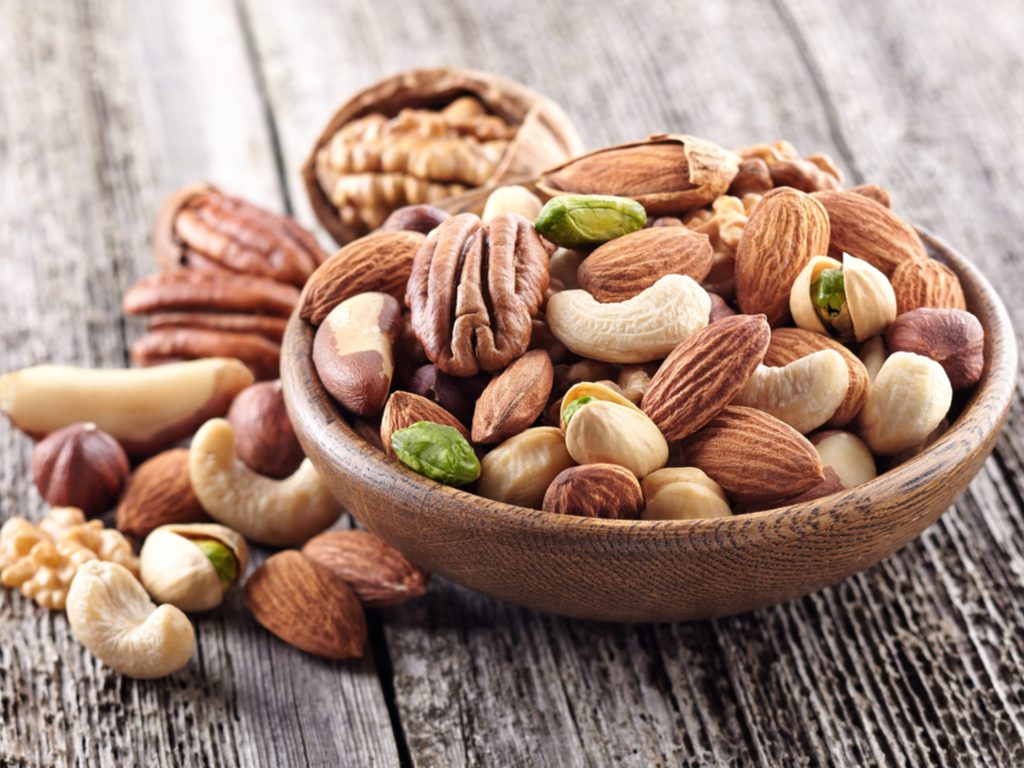Health tips: Six nuts and their benefits
by Karen Rollins Apr 9, 2018

A handful of nuts are great as a snack in between meals because, unlike chips, protein bars or chocolate, there are several nutritional benefits.
Nuts are full of complex carbohydrates, protein, fats and fibre, as well as various vitamins, omega-3s, zinc, iron, and magnesium. They also contain plant sterols which are believed to reduce the risk of cancer and actively help to reduce blood cholesterol levels.
Here are six snack-worthy nuts and their health benefits:
Almonds
Almonds are commonly referred to as a nut but they’re actually edible seeds that are the fruit of the almond tree.
Packed with vitamins, minerals, protein and fibre, almonds are a great source of vitamin E, which is an antioxidant that boosts your immune system and has been linked to lowering cholesterol. They also provide protein, copper and magnesium which counteract the effects of stress.
Experts suggest eating between 20g-50g almonds a day for adults could be beneficial as part of a balanced diet.
Brazil nuts
Brazil nuts are also edible seeds from the Brazil nut tree and are renowned for their high selenium content, which is an important mineral proven to boost your immune system by helping to prevent damage to nerves and cells.
They’re also a source of important nutrients including magnesium, zinc, vitamin E, calcium and some B vitamins.
They can be eaten raw or blanched.
Walnuts
Walnuts are a good source of mono-unsaturated, heart-friendly fats, as well as anti-inflammatory omega-3s, which also support heart function.
Studies show walnuts can contribute to brain health and memory function as a source of ellagic acid. They’re also rich in selenium, calcium, zinc, vitamin E and some B vitamins and contain iron.
Pine nuts
A perfect addition to salads because of their crunchy texture, pine nuts are a great source of nutrients, essential minerals and monounsaturated fatty acids, that help reduce cholesterol levels in the blood.
They also contain generous amounts of the essential vitamins E and K, which are known to have a positive impact on cardiovascular health.
Cashews
Cashews boast of having more iron than any other nut. Packed full of soluble dietary fibre, they’re also a great source of heart-friendly monounsaturated fats, which help to increase good cholesterol in the blood.
Cashews contain essential vitamins, minerals and antioxidants. They are delicious in smoothies, creamy desserts and can also be added to a stir fry.
Hazelnuts
Hazelnuts are a particularly versatile nut which can be used raw, roasted, in a paste or as an ingredient in healthy dishes.
They are bursting with vitamin E and are also rich in potassium, calcium, magnesium, copper and fibre, especially when eaten with the skin on.
Sources: BBC Good Food and Organic Facts








